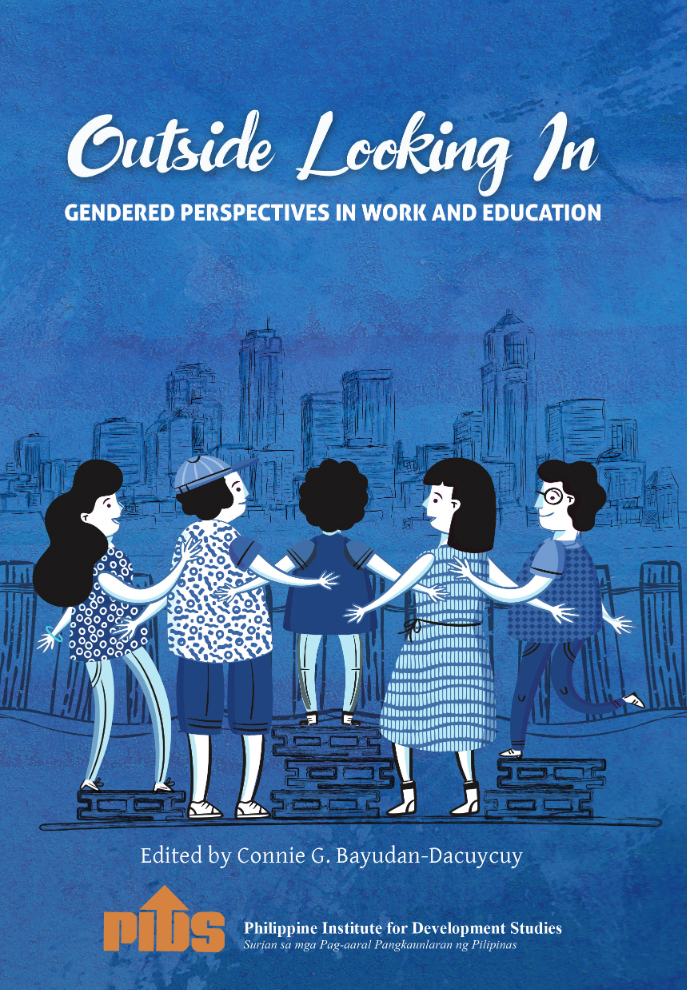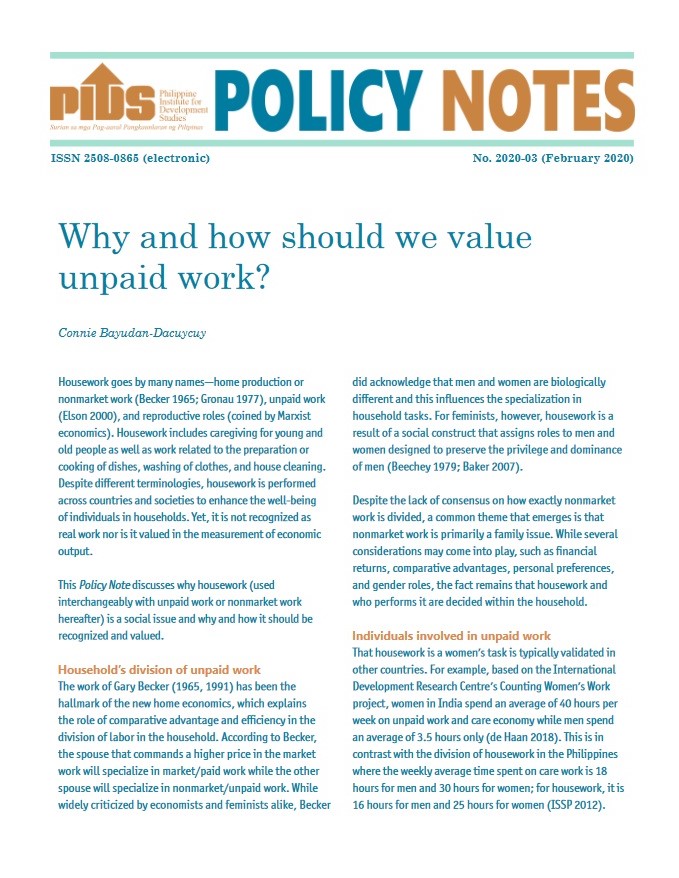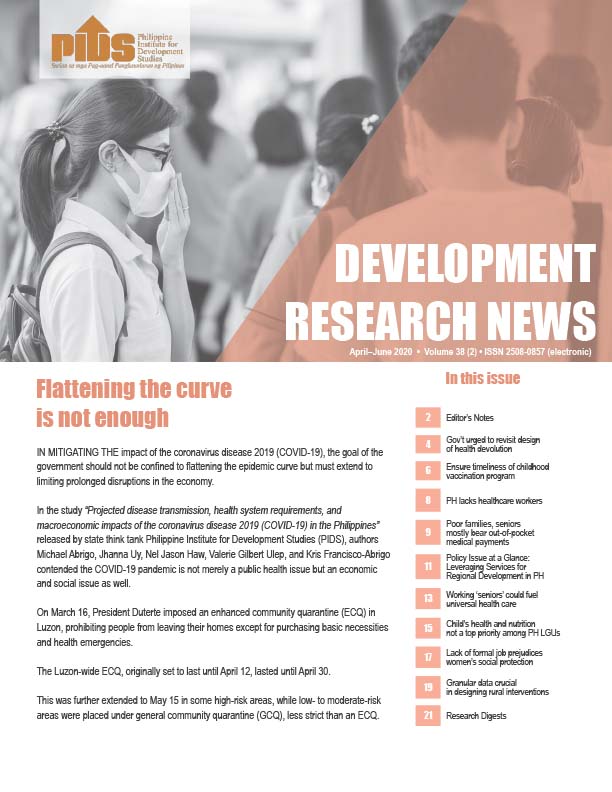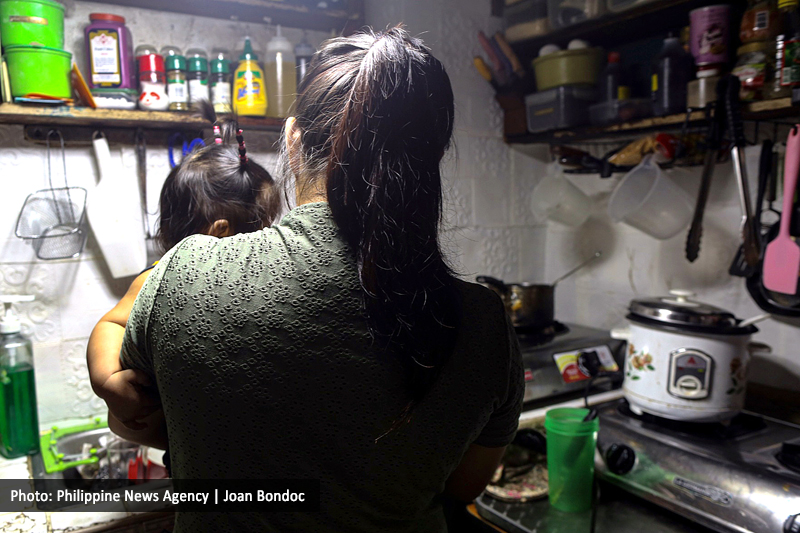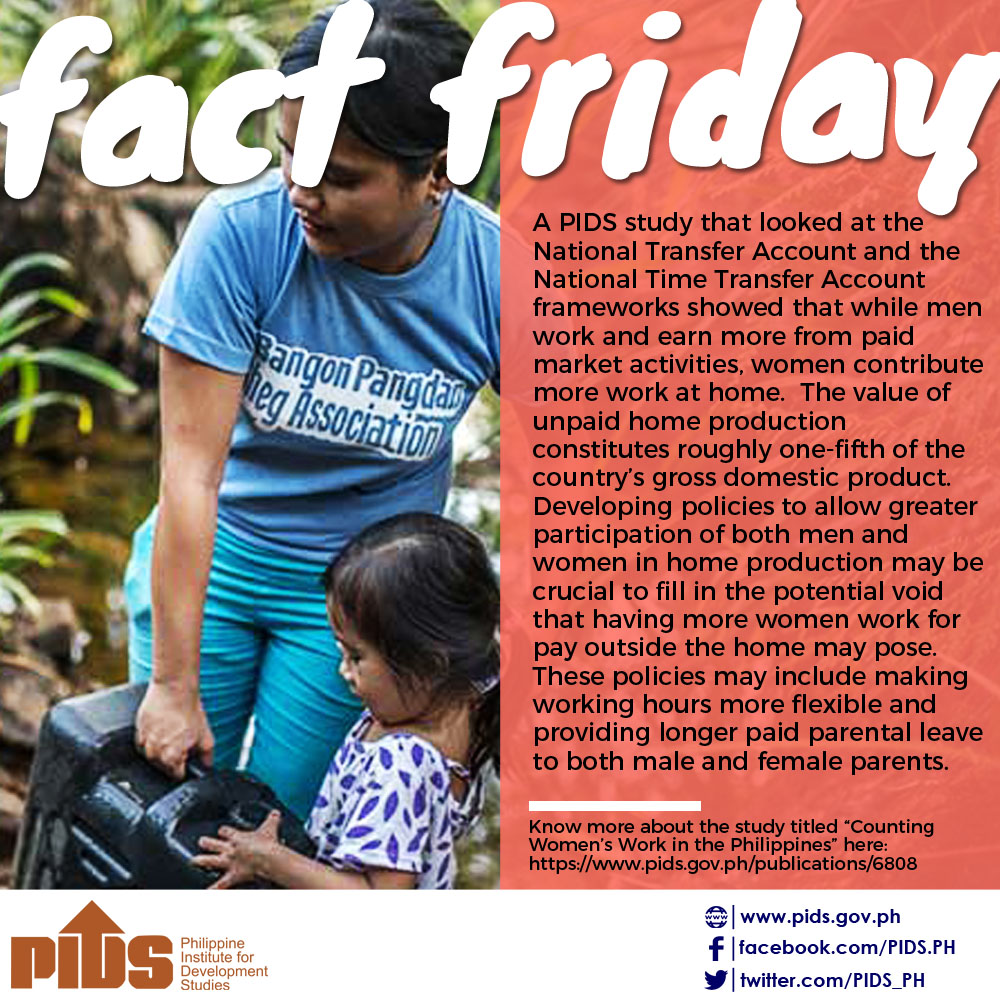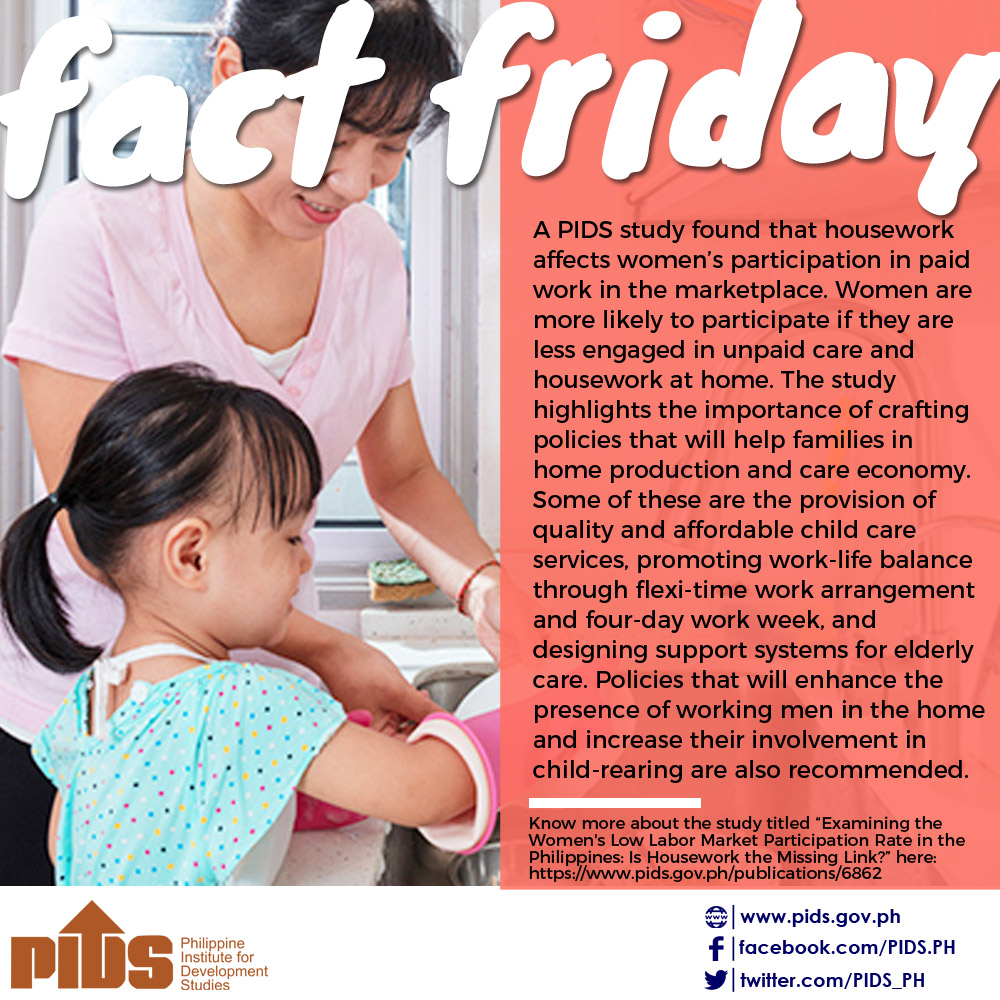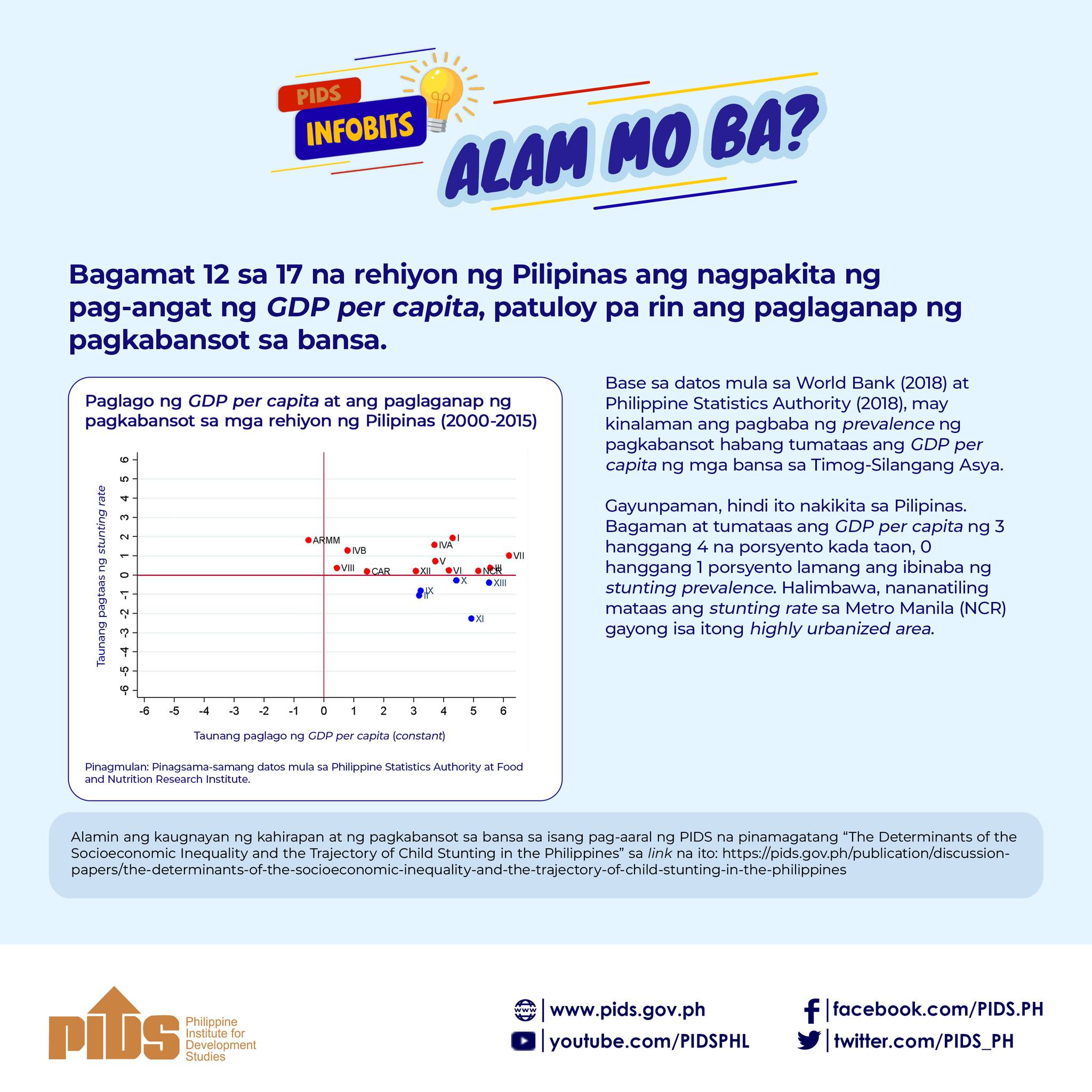THE unpaid work rendered by women in the Philippines has been valued at nearly P2 trillion, equivalent of 20% of Philippine GDP, a government think tank said.
In a statement on Tuesday, Philippine Institute for Development Studies (PIDS) Research Fellow Michael M. Abrigo said the combined value of unpaid work for both men and women in 2015 was estimated at P2.5 trillion, with women accounting for 76%, or P1.9 trillion.
Mr. Abrigo said, “We want to bring home the message that there’s value in housework, na hindi ibig sabihin nito na porke’t nasa bahay sila ay walang value ‘yung oras nila (it doesn’t mean just because they’re at home their time does not have value). We want to convert these time units into monetary units.”
He added that the time spent by women on household chores and care work make up 20% of the Philippines’ GDP.
The PIDS Research Fellow and his co-author used the National Transfer Account (NTA) to check whether activities performed by women doing unpaid work translate to economic activity that contributes to GDP. They also used the National Time Transfer Account (NTTA) to measure the time spent on unpaid work by women.
Mr. Abrigo noted that women, despite being more educated than men, “(o)nly comprised less than 50% of the workforce.” He said resolving the inequality in the labor force will involve men helping out with house work. According to 2015 data, only 2% of males help out with house and care work of their spouses and mothers.
“Para masagot natin ‘yung tanong kung papaano natin maeengganyo ang mga babae na magtrabaho sa labas ng bahay, dapat masagot muna natin ang tanong kung paano makakatulong ang mga lalaki sa gawaing bahay. This way, mabibigyan natin ng oras ang babae para naman makatulong sa income ng pamilya,” he stressed.
(To attract women into the work force, we should address how we men do work inside their homes. This way, we can give women more chances to help with the family income).
Mr. Abrigo recommends that the government and other stakeholders focus in policies that could boost the labor participation of women, such as allowing flexible working schemes and longer maternity leaves.

